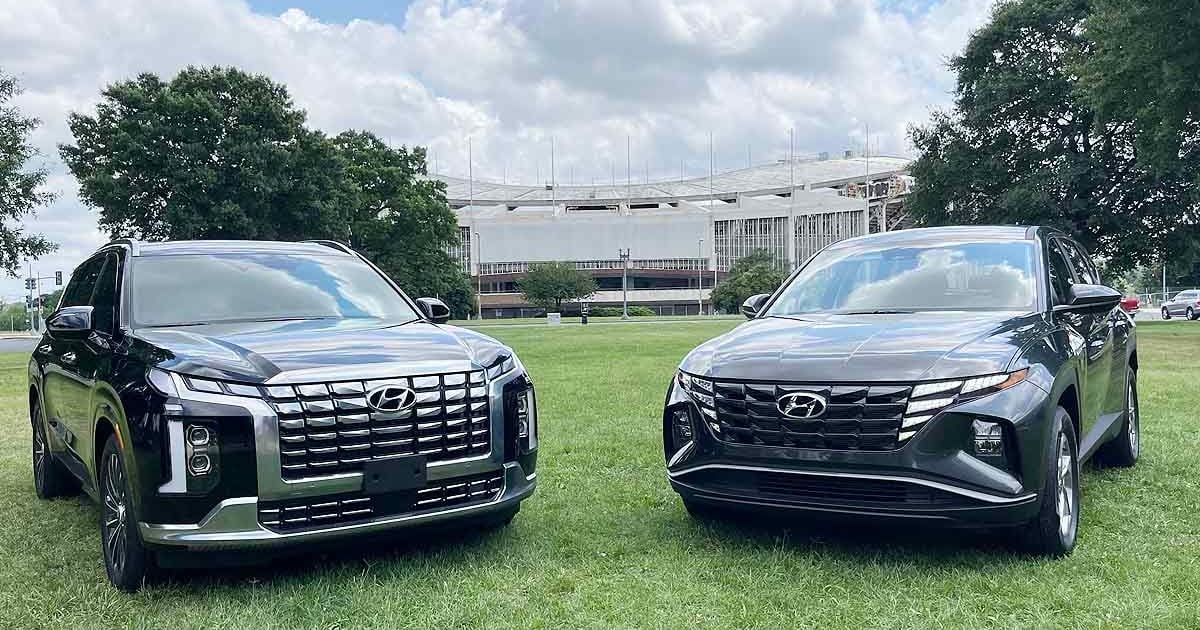
Hyundai Motor Co. wants to speed up completion rates of a software patch that will protect its vehicles targeted by thieves following a national social media-driven crime wave.
The automaker is staging a mobile service center in Washington, D.C., this week for owners of the affected vehicles residing within 25 miles of Robert F. Kennedy Memorial Stadium, where the event will take place.
According to company spokesperson Ira Gabriel, about 37,000 Hyundai owners were alerted via email about the opportunity.
The service center will cover two of the stadium’s parking lots. Technicians will be on-site to install and complete the software upgrade, a process Hyundai estimates will take less than an hour.
Gabriel said the clinic is the first in what could be a series of events and is a response to its dealer network being swamped with customers asking for the software update.
In a statement, Hyundai said the clinic is “intended to complement Hyundai’s nationwide network of dealerships and drive further installations of Hyundai’s free anti-theft software upgrade for customers who continue to be affected by the thefts.”
To execute the event, Hyundai is partnering with Washington, D.C., Mayor Muriel Bowser and Metropolitan Police Chief Pamela A. Smith.
The upgrades are part of a campaign Hyundai and Kia America launched in February to protect 7 million of their vehicles from the 2011 through 2022 model years that can be easily hot-wired because they lack engine immobilizers, a theft prevention technology that prevents a car from starting without the key in the ignition.
Though the patch covers most of the affected vehicles, about 700,000 Hyundai vehicles and 1.3 million Kia vehicles are ineligible for the software update because they lack an internal alarm system, which is what the upgrade enhances.
To limit exposure of this subset of vehicles, the companies have been providing free steering wheel locks to owners.
Getting customers to complete the patch has been slow going. In June, Hyundai said only 9 percent of its eligible vehicles had been updated with the software fix, while Kia said 11 percent of its eligible vehicles have undergone the upgrade.
Gabriel now estimates Hyundai’s completion rate is just under 17 percent. He expects the mobile clinic will help move the needle in the D.C. area and said expanding the program to other metropolitan areas in the near future will continue to remedy the situation.
Kia also estimates about 17 percent of affected vehicles eligible for the upgrade have undergone the update.
Thefts of the affected Hyundai and Kia vehicles became rampant after videos surfaced on TikTok and YouTube showing how to quickly break into them, pop off their steering wheel columns and start their engines with a USB plug or a similarly shaped tool.
Many municipalities said that in addition to the thefts, the vehicles were being used to commit other crimes, including destruction of public property.
Minneapolis police reported that in the past year, nearly 2 of every 5 vehicles stolen in the city involved Hyundai and Kia models and that five homicides, 13 shootings, 36 robberies and 265 crashes were tied to stolen Hyundai or Kia vehicles.
Some owners of the older-model Hyundais and Kias initiated a multistate class action seeking relief for the loss of value in their vehicles. In May, the automakers agreed to settle with litigants for $200 million.
But the companies are still facing lawsuits from a variety of ancillary parties, including 68 insurance companies saying the easy-to-steal vehicles are costing them millions of dollars.

